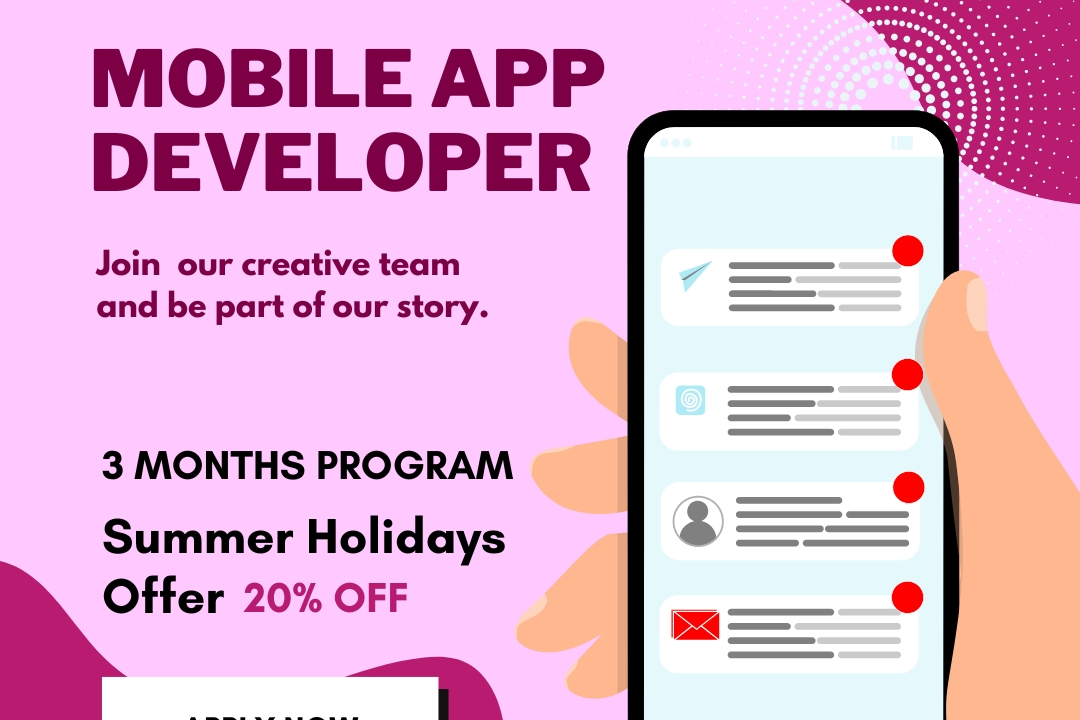Frequently Asked Interview Questions On React Native
Essential React Native Interview Questions and Answers
Frequently Asked Interview Questions On React Native
React Native has emerged as a popular choice for mobile app development due to its cross-platform capabilities, allowing developers to build apps for both iOS and Android using a single codebase. Common interview questions focus on understanding the strengths and weaknesses of React Native, its performance and optimization techniques, as well as the candidate's experience in designing and developing cross-platform mobile apps. Questions may also delve into the candidate's knowledge of React Native's core concepts, such as components, state management, and rendering, as well as their familiarity with its development workflow and tools.
To Download Our Brochure: https://www.justacademy.co/download-brochure-for-free
Message us for more information: +91 9987184296
1 - What is React Native?
React Native is a framework for building native mobile apps using JavaScript.
2) What are the advantages of using React Native?
React Native allows developers to build native mobile apps using a single codebase, reducing development time and costs.
3) What is the difference between React Native and React?
React Native is a framework that extends React for mobile app development, allowing for the creation of native mobile apps with JavaScript. React is a JavaScript library for building web applications.
4) Can React Native be used for iOS and Android development?
Yes, React Native can be used for both iOS and Android development.
5) What are the performance implications of using React Native?
React Native apps typically perform as well as native apps, as the code is compiled into native code.
6) How does React Native handle state management?
React Native uses a state management library such as Redux or MobX to manage application state.
7) Can I use third party libraries with React Native?
Yes, many third party libraries are available for use with React Native.
8) What is the learning curve for React Native?
The learning curve for React Native is relatively low for developers with JavaScript experience.
9) What are the limitations of React Native?
React Native may not be suitable for all mobile app development scenarios, such as apps that require access to low level device features or that require high performance.
10) What are the best practices for developing React Native apps?
Best practices for developing React Native apps include using a modular architecture, leveraging performance optimization techniques, and following React Native's recommended guidelines.
11 - What is the future of React Native?
React Native is a rapidly growing framework with a strong community and is expected to continue to gain popularity in the future.
12) How can I stay up to date with React Native?
To stay up to date with React Native, you can refer to the official React Native website, follow the React Native GitHub repository, and join React Native community forums.
13) What are the key differences between React Native and NativeScript?
React Native uses JavaScript as the primary development language, while NativeScript supports JavaScript, TypeScript, and Angular. React Native is more popular and has a larger community, while NativeScript provides more direct access to native APIs.
14) What are the advantages of using Expo?
Expo provides a managed workflow that simplifies React Native development, including features such as built in tooling, hosting, and over the air updates.
15) What are the best resources for learning React Native?
Official React Native documentation, online courses, and community created tutorials are excellent resources for learning React Native.
How to Get More Points in Text Based Games
- Pay attention to the instructions. Many text based games have specific rules and objectives that you need to follow in order to score points. Make sure you understand the game's mechanics before you start playing.
- Explore your surroundings.* In many text based games, you can find hidden objects or areas that contain valuable items or points. Take the time to explore your surroundings thoroughly.
- Talk to other characters.* Non player characters (NPCs) can often give you valuable information or clues that can help you score more points. Make sure to talk to everyone you meet.
- Solve puzzles.* Many text based games feature puzzles that you need to solve in order to progress. Solving puzzles can earn you points and help you unlock new areas of the game.
- Be patient.* Text based games can be challenging, and it may take some time to figure out how to score points. Don't get discouraged if you don't score a lot of points at first. Keep playing and you'll eventually get better.
- Specific Tips for Text Based RPGs
- Choose the right class.* Different classes in text based RPGs have different strengths and weaknesses. Choose a class that is适合 for the type of game you want to play.
- Build your character.* As you level up, you'll earn points that you can use to improve your character's stats and abilities. Spend your points wisely to create a character that is strong and well rounded.
- Equip your character.* Weapons, armor, and other items can give your character bonuses to their stats and abilities. Make sure to equip your character with the best gear you can find.
- Join a party.* Playing with other players can make it easier to defeat enemies and complete quests. Join a party with other players who are similar to your own level and goals.
- Have fun!* Text based RPGs are meant to be enjoyable, so make sure you're having fun while you're playing. Don't stress out too much about scoring points. Just relax and enjoy the game.
- Course Overview
- This course covers the most frequently asked React Native interview questions, from basic concepts to advanced topics. It provides in-depth explanations and practical examples to help you master the technical aspects of React Native.
- Course Description
- Master the art of answering frequently asked interview questions on React Native. This course covers technical concepts, coding challenges, and soft skills preparation, equipping you with the knowledge and confidence to ace your interviews and secure your dream job as a React Native developer.
- Key Features
- 1 - Comprehensive Tool Coverage: Provides hands-on training with a range of industry-standard testing tools, including Selenium, JIRA, LoadRunner, and TestRail.
- 2) Practical Exercises: Features real-world exercises and case studies to apply tools in various testing scenarios.
- 3) Interactive Learning: Includes interactive sessions with industry experts for personalized feedback and guidance.
- 4) Detailed Tutorials: Offers extensive tutorials and documentation on tool functionalities and best practices.
- 5) Advanced Techniques: Covers both fundamental and advanced techniques for using testing tools effectively.
- 6) Data Visualization: Integrates tools for visualizing test metrics and results, enhancing data interpretation and decision-making.
- 7) Tool Integration: Teaches how to integrate testing tools into the software development lifecycle for streamlined workflows.
- 8) Project-Based Learning: Focuses on project-based learning to build practical skills and create a portfolio of completed tasks.
- 9) Career Support: Provides resources and support for applying learned skills to real-world job scenarios, including resume building and interview preparation.
- 10) Up-to-Date Content: Ensures that course materials reflect the latest industry standards and tool updates.
Benefits of taking our course
Functional Tools
1 - React Native Debugger:
A Chrome extension that allows developers to debug React Native applications directly from their browsers.
Provides features such as inspecting the component tree, setting breakpoints, and viewing console logs.
2) Redux DevTools:
An extension for the Chrome browser that enables developers to monitor and debug Redux state management in React Native applications.
Allows for time traveling through state changes, viewing actions, and analyzing performance.
3) Expo Developer Tools:
A suite of tools provided by Expo that simplifies the development process for React Native applications.
Includes tools for building, debugging, and deploying apps, as well as a simulator and a console for inspecting application state.
4) React Native CLI:
A command line interface that helps developers create, build, and run React Native applications.
Provides commands for initializing projects, installing dependencies, and generating boilerplate code.
5) Node.js:
A JavaScript runtime environment that is used to build and run React Native applications.
Provides a wide range of modules and libraries for handling tasks such as networking, data manipulation, and authentication.
6) Yarn:
A package manager for Node.js that is commonly used in React Native projects.
Provides features such as dependency management, package version resolution, and lock file generation.
Increase Reputation:
- Answer questions with quality and helpful responses. Provide detailed explanations, cite reliable sources, and be respectful of other users.
- Ask insightful questions.* Show that you are engaged and interested in the community.
- Upvotes:* Encourage others to upvote your contributions by providing valuable and relevant information.
- Earn Badges:
- Complete challenges.* Participate in specific activities or meet certain milestones to earn badges.
- Reach reputation thresholds.* As you gain reputation, you will unlock badges at various levels.
- Participate in Contests and Events:
- Enter contests.* Show off your knowledge and skills by participating in community organized or platform sponsored contests.
- Attend Q&A sessions and webinars.* Connect with experts, ask questions, and potentially earn points for engagement.
- Other Strategies:
- Provide value to the community.* Offer your expertise, answer questions in your areas of knowledge, and help other users improve their experiences.
- Be active consistently.* Engage regularly with the platform to demonstrate your contributions.
- Follow the platform's guidelines and policies.* Respect the community rules and contribute in a positive manner.
- Promote the platform.* Share valuable content on social media or other platforms to expand the community.
- Use the platform's features.* Utilize tools like tags, categories, and formatting to make your contributions more discoverable and relevant.
- Collaborate with other users.* Join teams or engage in discussions to share knowledge and support each other.
Browse our course links : https://www.justacademy.co/all-courses
To Join our FREE DEMO Session:
This information is sourced from JustAcademy
Contact Info:
Roshan Chaturvedi
Message us on Whatsapp: +91 9987184296
Email id: info@justacademy.co
Interview Questions Of React Native












